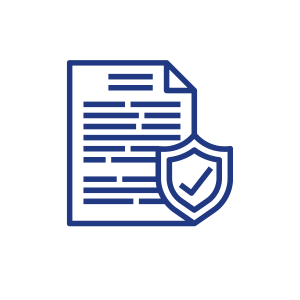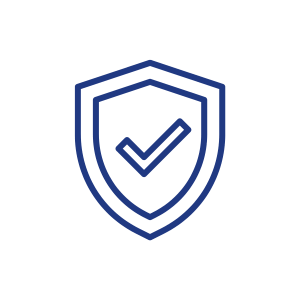
Following a cyber security checklist makes it easy to put in place fundamental security measures, and makes it easier to allocate budgets. It allows you to identify and document a set of cyber security procedures, standards, policies that make your business more secure and safe from cyber criminals.
1. Documented Policies
Your chosen policies are a set of security guidelines and obligations for your employees to follow when using company systems and networks.
2. Up-to-date Software
Keeping your software up-to-date will patch up any potential weaknesses in your system. Keeping your software up-to-date, alongside patch management software will help protect your organisation from cyber attacks.

3. Cyber Security Training
Over 90% of cyber attacks are caused by human error. Cyber security training is one of the most important items on this list. Getting involved with cyber security training will provide you with the skills you need to protect yourself, and your organisation, from the most common cyber attacks. Not including cyber security training within your business is actually a GDPR breach. Find out more about security training here.
4. Password Protection
Having a strong password is essential. It ensures only the person with correct permissions can connect to the network. You can use password management software to house all your passwords and give you reminders when it is time to update them.
5. Removal of Unused Accounts
When an employee leaves a company you must remove their access to all business accounts. Leaving their accounts open creates a vulnerability in your system as they will still be able to access company data. Malicious actors can gain access to these accounts and easily get into your business network.
6. Secure Website Use
It should be mandatory for employees to stick to secure websites when connected to the organisation’s network, especially when sharing sensitive information. You can see if a site is secure if it has ‘https’ in the URL. This means the site is encrypted.

7. Email Security
Emails are one of the most common communication methods in the workplace. Emails are also the most commonly used attack vector by cyber criminals. Organisations need email security to remove as much risk as possible.
8. SSL Certification
An SSL certification, or Secure Sockets Layer, shows that your website is secure and provides end-to-end encryption between the client and server.
9. Secure Web Hosting Provider
Having a secure web hosting provider is important as they are in charge of backing up the website, keeping the software up to date and maintaining server logs. Without regular website maintenance, you may experience security breaches or elements of your website not working.
10. Firewalls
Using firewalls on your network will filter out any incoming malicious connections that might cause a security breach.
